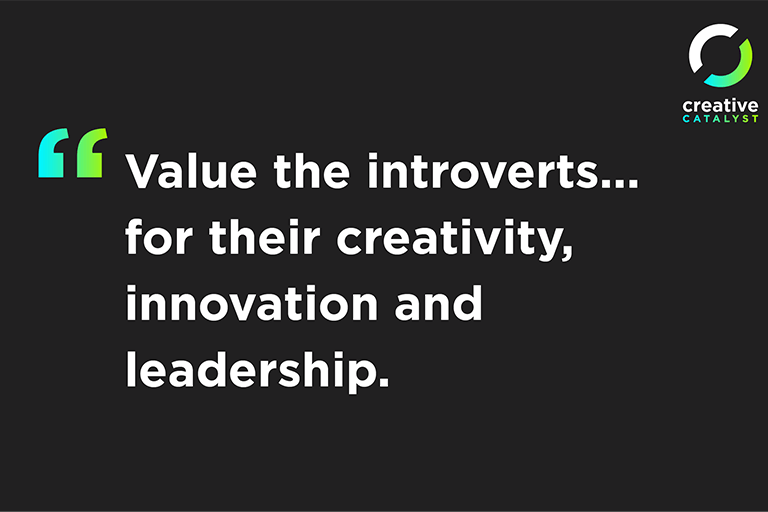Surely you have left a workplace meeting frustrated because someone or a small group monopolized the conversation. Many of us, myself included, would acknowledge in our more reflective moments that in one meeting or another we have taken more than our fair share of time.
This happens in part because conventional wisdom has it that fearless expression of ideas is correlated to workplace success. In a democratic society, we are expected to speak our minds. It is not surprising, then, that our workplaces are populated with outspoken extroverts.
There are others who are reserved. They do not draw attention to themselves or their point of view. They are the quiet ones, the introverts who have plenty to offer. They may prefer a quiet space to the hubbub of the group. Susan Cain, in her TED Talk, urges us to value the introverts in our midst more for their creativity, innovation and leadership.
Artists and scientists are widely stereotyped as withdrawn and private. Hence it is easy to see the correlation between creativity and introversion.
But what about the correlation between leadership and introversion? Both in history and current times, many introverts have become transformative leaders. Gandhi, for example, a soft-spoken introvert, was a creative and resolute leader who led India's freedom movement. Lincoln, an introvert, was one of the most consequential presidents of the United States. Among modern leaders, you may be surprised that some of the household examples of corporate success, such as Bill Gates, Walt Disney and Marissa Mayer, are characterized as introverts rather than extroverts.
Melanie Curtin, writes in Inc. that introverts have some natural talents for leadership, which include being good listeners, who are thoughtful in their approach, and willing to acknowledge the contribution of introverts. Of course, nobody is 100 percent introvert or extrovert, but somewhere on a continuum between both extremes.
Introverts, in turn, have to hold up their end of the bargain. While we treasure their restraint, we also treasure their ideas. We need to hear from them and they have to make themselves heard. According to Brené Brown, going outside one’s comfort zone causes vulnerability, which can be conquered only by courage. Further, she adds that the willingness to make oneself vulnerable is an essential step for creativity and innovation.
As organizations invest in innovation, let us give equal voice to introverts. Their contributions can add to the diversity of thought and strengthen an organization.
By Prabu David
Prabu David is Dean of the College of Communication Arts and Sciences at Michigan State University. His class on leadership is part of an online master's program in Strategic Communication.
